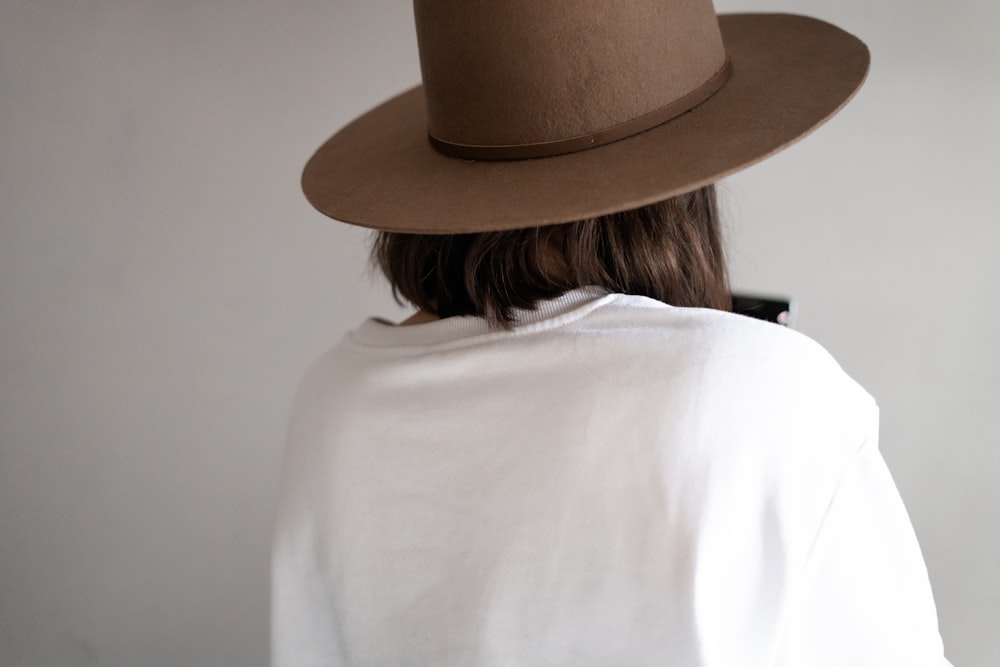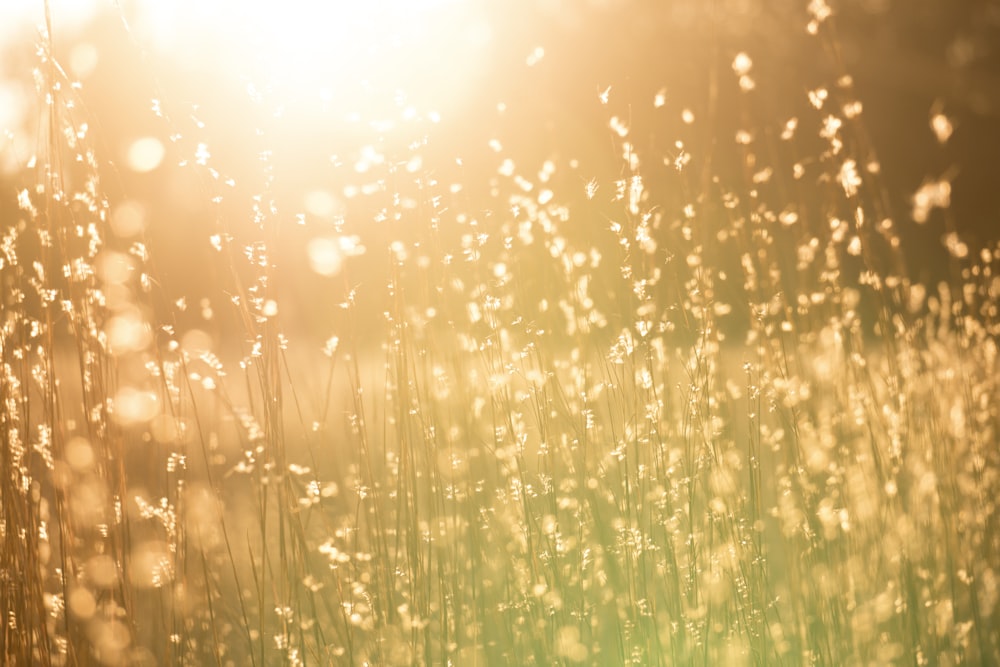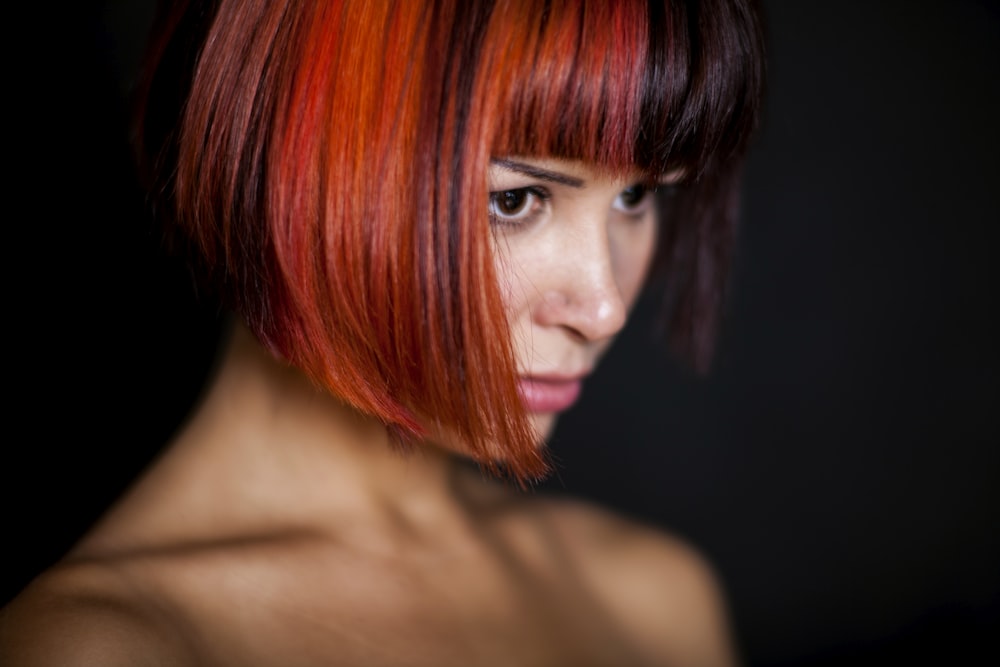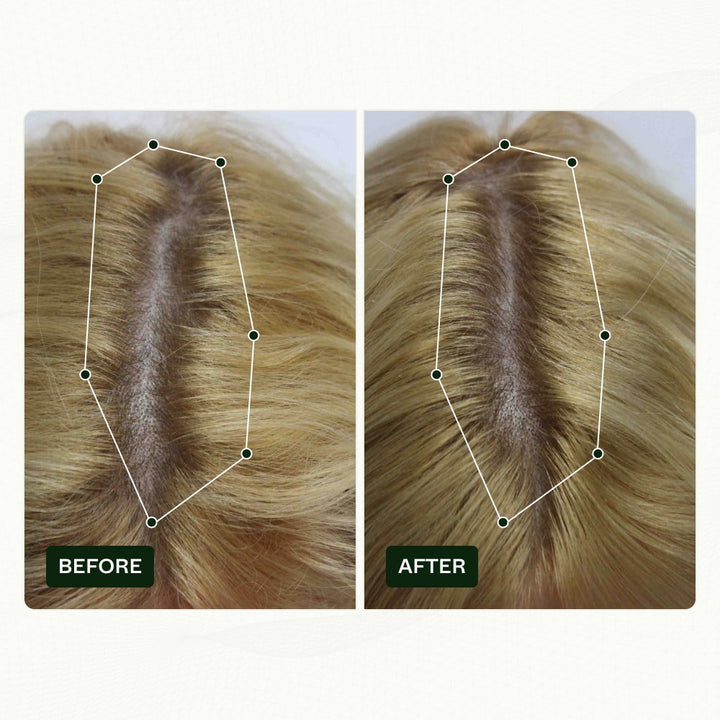Hair loss is a topic shrouded in myths and misconceptions, leaving many of us scratching our heads—sometimes literally!
Whether it's blaming the hat you wear every day or fearing that one too many hair washes will lead to baldness, it's easy to get tangled up in what's fact and what's fiction.
But fear not! We're here to comb through the confusion and illuminate the truth behind 12 common hair loss myths. By debunking these myths, we aim to provide clarity and peace of mind to those experiencing hair loss and save you from unnecessary worry.
Let's dive into the facts and uncover the real story behind hair loss.
12 common hair loss myths
Here are the 12 most popular hair loss myths:
- Wearing hats causes hair loss.
- Cutting hair makes it grow back thicker.
- Stress is always to blame for hair loss.
- Only men suffer from genetic hair loss.
- Over-shampooing your hair leads to hair loss.
- Hair loss stops as you age.
- Sun exposure leads to hair loss.
- Brushing your hair 100 times a day will make it healthier.
- Hair loss is caused by poor circulation.
- Hair dyes and chemicals cause permanent hair loss.
- Plucking one gray hair will cause two to grow in its place.
- Baldness is inherited from your mother's side.
Myth 1: Wearing hats causes hair loss

There's a widespread belief that donning your favorite cap can lead to baldness, but rest easy, hat lovers—this myth is more fiction than fact. The fear stems from the idea that hats cut off circulation to the scalp, starving hair follicles of blood and nutrients.
However, hair loss is primarily caused by genetics, hormonal changes, or certain medical conditions, not by your choice of headwear. While tight hats might temporarily restrict blood flow, they don't cause enough damage to result in hair loss.
So, feel free to rock your hats without worry; they're not the villains in your hair's health story.
Myth 2: Cutting hair makes it grow back thicker
This myth is as old as time, suggesting that regular trims can affect the thickness and speed of your hair growth. Hair thickness and growth rate are determined by factors beneath the scalp, at the follicle level, which cutting cannot influence.
Trimming can eliminate split ends, making hair appear healthier and fuller, but it doesn't change the hair's physical structure or growth cycle. Hair grows from the roots, so cutting the ends doesn't directly impact its growth.
Keep your hair trimmed for style and health, but don't expect a haircut to work miracles on its volume or growth speed.
Myth 3: Stress is always to blame for hair loss

Stress is often cited as a primary culprit for hair loss, but the truth is a bit more nuanced. While extreme stress can lead to a condition known as telogen effluvium, causing hair to fall out temporarily, everyday stress won't directly cause permanent hair loss.
Genetic factors, hormonal imbalances, and certain medical conditions are far more influential in causing hair loss. Managing stress is crucial for overall health, but it's only a magic cure for hair loss if specifically stress-induced.
Myth 4: Only men suffer from genetic hair loss
It's a common misconception that only men experience genetic hair loss, known as androgenetic alopecia. In reality, this condition affects both sexes.
Men tend to notice receding hairlines and bald spots, while women might see a general thinning across the scalp.
The key difference lies in the pattern and visibility rather than the condition's presence, making it essential for both men and women to understand their risks and potential treatments.
Myth 5: Over-shampooing your hair leads to hair loss
Many believe washing hair too frequently is a fast track to hair loss. However, hair cleanliness and hair loss are not directly related. Shampooing removes dirt and excess oil but doesn't affect the hair roots where hair growth occurs.
Overusing certain harsh shampoos could dry out and damage hair, but it doesn't cause hair loss. The best approach is to use the right shampoo for your hair type and washing as needed.
Myth 6: Hair loss stops as you age
There's a notion that hair loss is only a concern during midlife, then stabilizes. Hair loss can continue as you age, with factors like hormonal changes and health conditions playing significant roles.
While the rate of hair loss may vary, there's no guaranteed "stop" age, highlighting the importance of ongoing care and treatment considerations.
Myth 7: Sun exposure leads to hair loss

Sunlight is often accused of contributing to hair loss, but there's no direct correlation. While excessive UV exposure can damage the hair shafts, making them brittle and dry, it doesn't affect the hair follicles deep in the scalp where hair growth occurs.
Protecting your hair from UV damage is good practice for maintaining hair health, but sun exposure doesn't cause hair loss.
Myth 8: Brushing your hair 100 times a day will make it healthier
The old advice of brushing your hair 100 times daily for health is outdated and potentially harmful. Overbrushing can cause breakage and scalp irritation, leading to more harm than good.
Gentle brushing can help distribute natural oils through the hair, but moderation is key for maintaining hair health and preventing unnecessary stress on the hair and scalp.
Myth 9: Hair loss is caused by poor circulation
The myth that poor circulation causes hair loss suggests that increasing scalp blood flow can prevent baldness. However, hair loss is more complex, typically involving genetics, hormones, or autoimmune responses.
While scalp massages can feel great and promote relaxation, they won't significantly alter your hair loss trajectory.
Myth 10: Hair dyes and chemicals cause permanent hair loss

Frequent use of hair dyes and chemical treatments can damage hair, leading to breakage and temporary loss. However, these practices do not typically affect the hair follicle, meaning they don't cause permanent hair loss.
Using these products as directed and considering a professional application to minimize damage is vital.
Myth 11: Plucking one gray hair will cause two to grow in its place
This myth suggests that removing gray hair will lead to more gray hairs. In reality, plucking hair does not affect the number of follicles on the scalp or change their color production. Gray hair is determined by genetics and age, not by plucking.
Myth 12: Baldness is inherited from your mother's side
While baldness has a genetic component, it's not solely inherited from the maternal side. The primary baldness gene is on the X chromosome, which men inherit from their mothers, but additional genes involved in hair loss are inherited from both parents.
Your father's hair history is just as important to consider as your mother's when predicting hair loss.
A better approach for your overall hair health

The Bio-Pilixin® Serum from Scandinavian Biolabs is meticulously crafted to aid in decreasing hair loss while encouraging growth. This serum utilizes a drug-free approach, incorporating plant growth factors produced through advanced stem cell technology.
Clinical studies have demonstrated noticeable outcomes in just 45 days, including a substantial decrease in hair loss and an increase in hair thickness, as reported by trial participants.
Key ingredients such as Niacinamide help fortify hair by boosting keratin production, and Vanillyl Butyl Ether enhances scalp blood circulation.
The formula is entirely vegan, featuring a blend of ingredients directly derived from nature or engineered to closely mimic natural compounds.
Conclusion
In debunking common hair loss myths, we've clarified that genetics, hormonal changes, and health conditions play significant roles, while habits like wearing hats or over-washing are not to blame.
The Bio-Pilixin® Serum offers a promising, vegan solution to support hair growth and reduce hair loss through innovative, natural ingredients.
FAQs
Can wearing hats really cause hair loss?
No, wearing hats does not cause hair loss. Hair loss is mainly influenced by genetics and medical conditions.
Is it true that stress can lead to permanent hair loss?
While extreme stress can cause temporary hair shedding, everyday stress does not lead to permanent hair loss.
Can cutting hair influence its growth rate or thickness?
No, cutting hair does not affect its growth rate or thickness. Hair growth is determined by factors at the follicle level.
Do hair dyes and chemical treatments cause permanent hair loss?
While they can damage the hair, leading to breakage, hair dyes and chemical treatments do not typically cause permanent hair loss.
Is hair loss only inherited from the mother's side of the family?
No, the genes affecting hair loss can be inherited from both the mother's and father's side of the family.
References
- https://www.ncbi.nlm.nih.gov/pmc/articles/PMC7522433/
- https://opendermatologyjournal.com/VOLUME/15/PAGE/52/FULLTEXT/
Read more:


